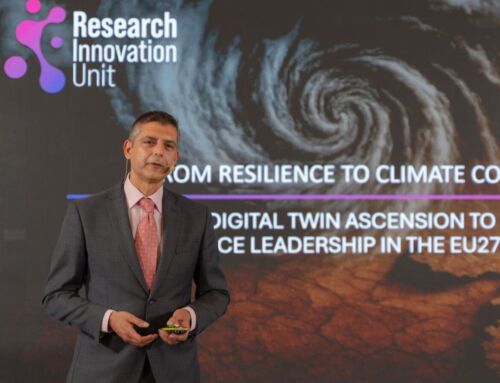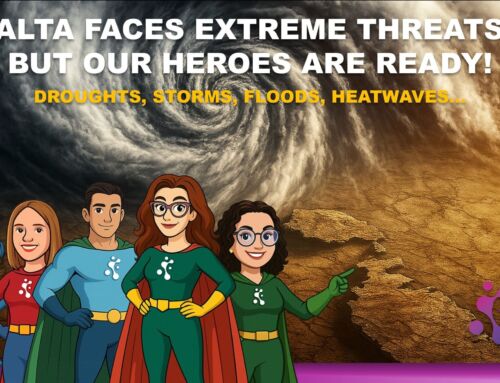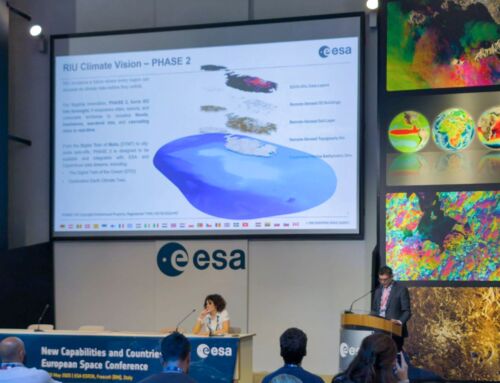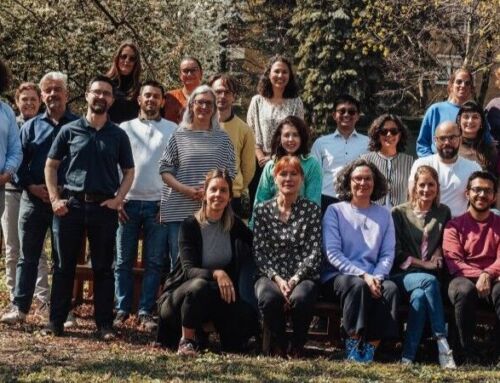A Note of Reflection
It has been a while since my last editorial. This silence was not a pause in thought, but a crucible of transformation. During these past five months, my focus intensified on developing Malta’s next-generation climate intelligence architecture: the second iteration of the Predictive Hyper-Adaptive Simulation Engine – PHASE 2 (PH-2), the launch of the Digital Twin of Malta (DTMT), and most notably, the introduction of the Climate Command Doctrine. This period demanded not words, but action, and now, it is time to reflect and report.
I wish to thank our readers, supporters, and international peers who noted the absence of my regular editorials. The truth is simple: in collaboration with my team, we were building the very future we had long advocated for. With this editorial, I return not just to share updates, but to mark a pivotal inflection point. Malta has taken a step that many states are still contemplating. The reason? Climate Command cannot wait.
Beyond Bureaucracy, Toward Readiness
Malta, like many small island states, operates within a governance framework rooted in rational-legal bureaucracy. While this structure has served its historical purpose in ensuring order and procedural consistency, the evolving nature of climate risk requires additional tools and approaches. Traditional administrative processes alone can no longer keep pace with the systemic, cross-sectoral, and rapidly unfolding realities posed by climate change.
We do not discard what came before. Rather, we build upon it. The shift we advocate is not away from existing leadership structures, but towards complementing them with operational foresight. It is not about changing governance but about equipping it to govern under pressure.
What is the new buzzword Climate Command #ClimateCommand?
The Climate Command Doctrine, formally introduced by my capacity at the Research Innovation Unit (RIU) in 2025, redefines climate adaptation as an operational science. It is not a policy document; it is a working doctrine, already embedded across our simulations, platforms, and stakeholder engagements. Climate Command means:
- From Assessment to Action: Moving beyond static reports into simulations, dashboards, and targeted interventions.
- From Policy Lag to Foresight: Empowering frontline entities to act even when national policy remains pending.
- From Silos to Systems Thinking: Addressing risks across energy, transport, housing, and health in synchrony.
- From Static Planning to Live Simulation: Using digital twins to model unfolding crises and evaluate response options dynamically.
- From Global Paralysis to Local Precision: Demonstrating that small states can lead through intelligence and agility.
Climate Command transforms localities into foresight units. It equips leaders not with rhetorical frameworks, but with operational dashboards, predictive engines, and real-time decision support.
The Operational Science of Adaptation
PHASE 2, developed exclusively by the undersigned, is the proprietary scientific engine that powers Climate Command. It is a personal intellectual property granted for non-commercial public use by the RIU for public benefit in Malta, under a non-exclusive licence.
- PHASE 1 (Registered IP No. INS:3254/2020/MT) laid the groundwork with geospatial climate modelling focused on Urban Heat Islands and thermal overlays.
- PHASE 2 (Registered IP No. INS:10578/2025/MT) expanded this vision into a high-resolution, AI-driven, and real-time simulation engine aligned with European climate foresight frameworks.
Built upon GPU-accelerated architecture and integrated with Copernicus, Sentinel, and an expanse of data sources, PHASE 2 enables:
- Real-time Urban Heat Island and flooding simulations
- High-resolution 3D storm surge modelling (e.g. Storm Helios)
- Vulnerability indexing through AI-driven scenario chaining
- Parcel-level visualisation for local adaptation planning
The Digital Twin of Malta (DTMT-01) and its derivatives, such as DTMT-03, are the living embodiments of Climate Command. They provide an immersive interface between data, science, and local governance. In essence, Malta has transformed climate reports into climate rehearsal rooms.
From Malta to the World
We have been privileged to present the Climate Command Doctrine at the European Space Agency, DG CLIMA, DG CNCET, the Council of Europe, and through emerging dialogues with Japan’s JANUS and ECRA. Each engagement reinforces a shared truth: the shift from bureaucratic reporting to operational foresight is not optional. It is inevitable.
Malta’s scale has proven to be a strength. Our smallness allows for agility, integration, and rapid testing. What we pioneer here, others can adapt elsewhere. From local councils to national agencies, the Climate Command model serves multilevel governance for any government ready to act, not react.
A Call to Action
The urgency of climate change demands more than narratives. It demands infrastructure: digital, procedural, and institutional. We invite municipalities, regional bodies, and national ministries across Europe and beyond to explore the Climate Command framework.
Whether through technical dialogues, pilot collaborations, or shared simulations, we stand ready to offer our tools and methodologies in service of collective resilience. Let Malta’s doctrine be your testbed. Let foresight become your frontline.
A Closing Reflection
Climate Command is not a slogan. It is a duty. A duty to act when delay becomes danger. A duty to simulate when guessing is no longer good enough. And a duty to lead with precision when traditional methods reach their limit.
This editorial marks our return not just to communication, but to conviction. We will continue to publish insights, share our work, and build alliances. To those who read this and feel inspired, reach out. To those who remain cautious, we invite you to test our simulations.
Climate change will not wait. Neither will we.







